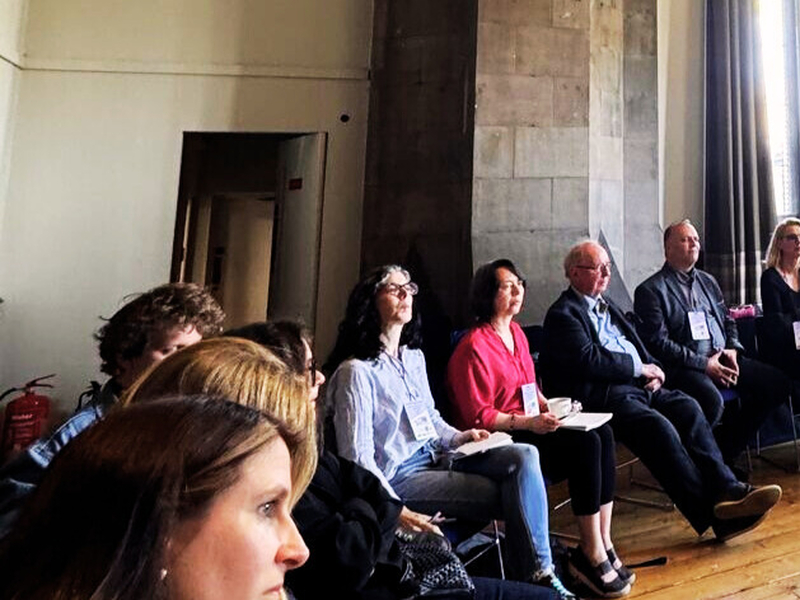EFFE Laureate - Edinburgh Festival Fringe
To many the Edinburgh Fringe is the antithesis of a festival; uncurated, shambolic, insanely eclectic and limited only by the physical spaces able to pass the local Council's fire regulations. To others it is the ultimate extravaganza of democratic showmanship – if you believe enough in your work to cover the costs (which are significant), you're welcome to try your luck.

It started as a refuseniks' event – when eight hopeful groups turned up to the first Edinburgh Festival and were not included; in retrospect an unfortunate decision because it reinforced the tendency to see the 'high' arts as elitist and antidemocratic. Nonetheless, for 70 years the Fringe has shaken up the British art and entertainment establishment, and been the nursery for most of the talent that succeeds and much of the dross that does not.
The sheer scale of the modern Edinburgh Fringe is boggling; this year you will need to navigate through 3,398 shows (of which 686 are free) at 300 venues given by 53,232 performers from 58 nations. 35% of the events are classed as comedy, 28% theatre and 14% music.
Shona McCarthy, its Director but emphatically not its Artistic Director, describes the phenomenon as “collaborative, collegiate and distinctive”. Her job is not to pick the shows but to put the mechanisms in place for helping producers find spaces and bedrooms, sell tickets, manage the media and make the most of their time in the city. She is not worried by giving up the right to pick the programme. “I get a bigger buzz out of enabling other people to put on work judged by themselves.”
In reality the Fringe is at best a massaged democracy and, although the Fringe Society does not choose works or artists, there is a considerable degree of management. It is a market place but the competition for stall space means that those with the deepest pockets get the best spots.
The prime locations are managed as festivals within a festival by four (at the last count) large production companies – led by Assembly, which under William Burdett-Coutts first saw the potential when it took over the city's Assembly Rooms in the mid 1980s and now, like the others – Pleasance, Underbelly and Gilded Balloon - has a grip on a catalogue of halls and pavilions. These production companies pick and choose, not just on the basis of ready money, but on artistic and audience potential; refusing plenty of applicants and allocating spaces and (most importantly) time slots many months in advance.
For the true independent presenter the race is then on to find a church hall, a schoolroom, a tent or the back room of a bar that is prepared to let you in. There are advantages in sharing venues, of course, because it also helps share the costs of lighting, sound and front of house staff. Getting an audience, though, is a matter of word of mouth and pounding the pavements, spending hours on the Royal Mile and Princes Street handing out flyers.
The real sense of equality is felt by the performers. Pulling a crowd is hard – while there are plenty of sell-outs, some years the average house is below ten people – so there is a fellow feeling among those taking to the stage. Celebrities who would not bother to say hello to lesser names in London, will be happy to share a bottle in the Scottish capital.
I have performed, presented, had a play shown at and reviewed the Fringe intermittently for over thirty years and it is tough (on the liver, the pocket, the feet and the mind) but it is also hugely exhilarating. As one of the distinguished jurors for EFFE said (a juror whom I first met when he was acting there as a teenager), the Fringe is “still so bizarrely exceptional and so inclusive of students, amateurs, professionals and internationals – so incredibly open to people making it themselves – it demands recognition.”
From the audience's point of view, Shona McCarthy doesn't believe they really notice which of the concurrent festivals they are going to. “They don't see the divisions. For most people it's all just 'the festival'. In a day they are likely to drop into the Fringe, the Book Festival and the International Festival. I just want them to see as much as they can.”
Location: Edinburgh, United Kingdom
Director: Shona McCarthy
Dates: 2017/08/04 – 2017/08/28
Art Disciplines: Street arts, Circus, Dance, Theatre
Find out more about the festivals on their EFFE Profile and the Edinburgh Festival Fringe website.


